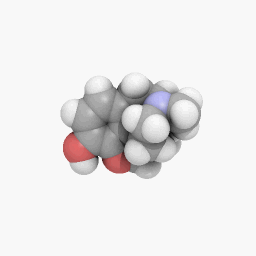Hydromorphone: Difference between revisions
Jump to navigation
Jump to search
GrimReaper (talk | contribs) |
GrimReaper (talk | contribs) |
||
| Line 1: | Line 1: | ||
[[File:2000px-Hydromorphone - Hydromorphon.svg.png|280px|right]] | |||
= General information = | = General information = | ||
| Line 65: | Line 68: | ||
= Images = | = Images = | ||
[[File:Hydromorphone 27feb.gif|3D animated model of a hydromorphone molecule]] | [[File:Hydromorphone 27feb.gif|3D animated model of a hydromorphone molecule]] | ||
Revision as of 06:24, 6 May 2014

General information
Hydromorphone, usually sold as brand names Palladone or Dilaudid, is a very potent centrally acting analgesic drug of the opioid class.
History
Knoll introduced it to the mass market in 1926 under the brand name Dilaudid, indicating its derivation and degree of similarity to morphine (by way of laudanum). The brand name Dilaudid is more widely known than the generic term hydromorphone, and because of this, Dilaudid is often used generically to mean any form of hydromorphone.
Dosage
Oral
Light: 1-2 mg
Common: 3-4 mg
Strong: 4-8+ mg
Insufflated
Light: 1-2 mg
Common: 3-4 mg
Strong: 4-8+ mg
Intravenous
Light: 1-2 mg
Common: 3-4 mg
Strong: 4-6+ mg
Effects
Positive
- Euphoria
- Pain relief
Neutral
- Pupil Constriction
- Itching
- Sedation
Negative
- Drowsiness
- CNS depression
- Dizziness
- Nausea
- Vomiting
- Constipation
- Sweating
Images
Legal status
- United States: Schedule II
